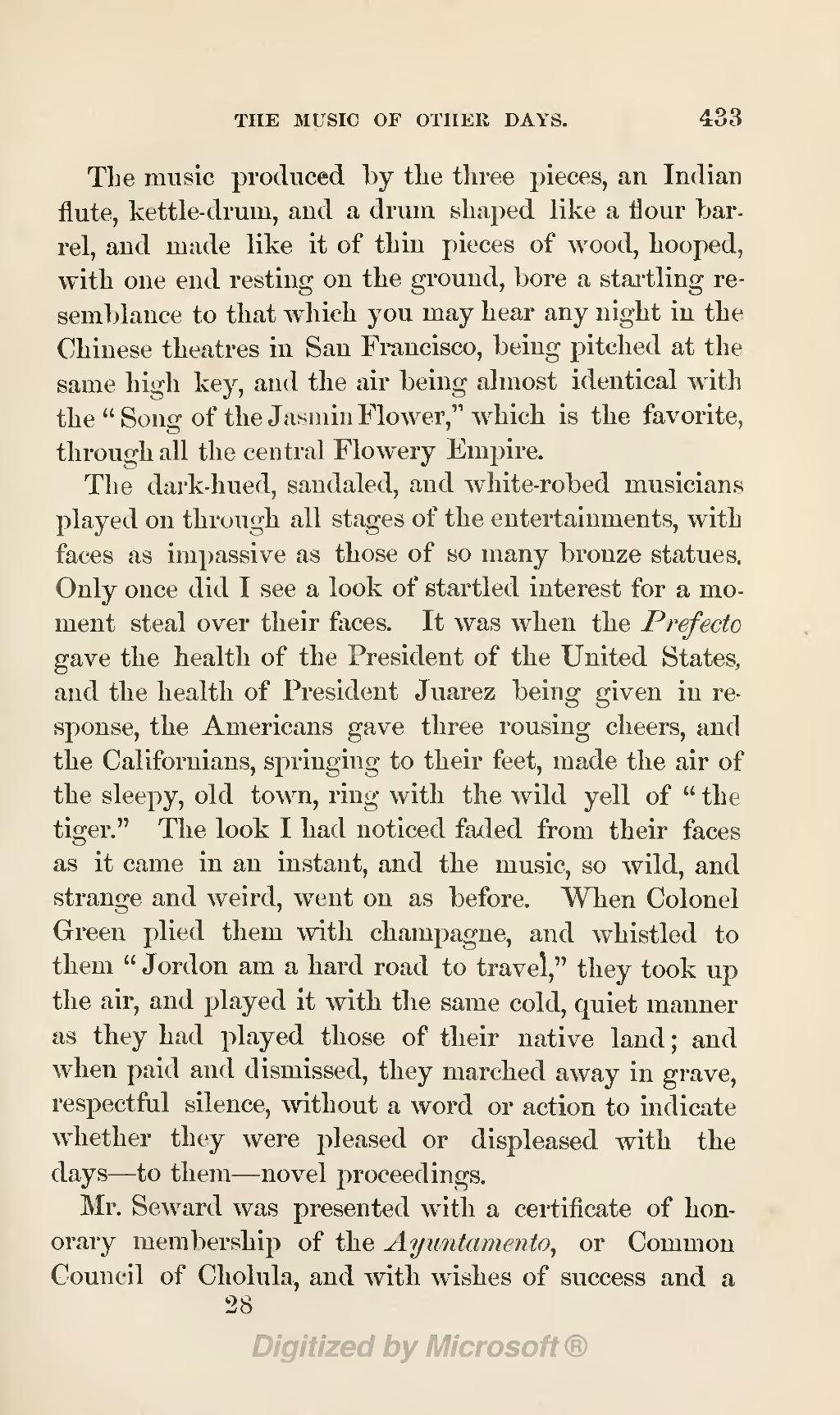The music produced by the three pieces, an Indian flute, kettle-drum, and a drum shaped like a flour barrel, and made like it of thin pieces of wood, hooped, with one end resting on the ground, bore a startling resemblance to that which you may hear any night in the Chinese theatres in San Francisco, being pitched at the same high key, and the air being almost identical with the "Song of the Jasmin Flower," which is the favorite, through all the central Flowery Empire.
The dark-hued, sandaled, and white-robed musicians played on through all stages of the entertainments, with faces as impassive as those of so many bronze statues. Only once did I see a look of startled interest for a moment steal over their faces. It was when the Prefecto gave the health of the President of the United States, and the health of President Juarez being given in response, the Americans gave three rousing cheers, and the Californians, springing to their feet, made the air of the sleepy, old town, ring with the wild yell of "the tiger." The look I had noticed faded from their faces as it came in an instant, and the music, so wild, and strange and weird, went on as before. When Colonel Green plied them with champagne, and whistled to them "Jordon am a hard road to travel," they took up the air, and played it with the same cold, quiet manner as they had played those of their native land; and when paid and dismissed, they marched away in grave, respectful silence, without a word or action to indicate whether they were pleased or displeased with the days—to them—novel proceedings.
Mr. Seward was presented with a certificate of honorary membership of the Ayuntamento, or Common Council of Cholula, and with wishes of success and a
